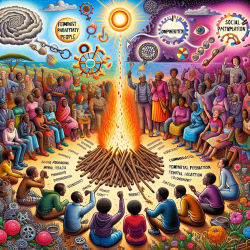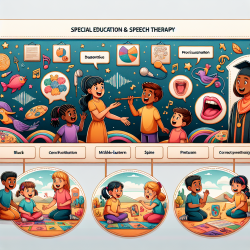Introduction
In the pursuit of creating better health outcomes for LBQT+ persons in Kenya, the research article titled “Empowerment for Us by Us (E4UBU)” provides significant insights. The study, conducted using feminist participatory methods, explores how LBQT+ persons in Western Kenya conceptualize empowerment. It highlights the critical role of empowerment in transforming negative forces of intersectional oppression into experiences of power, leading to improved mental health and well-being.
Understanding Empowerment as a Process
The research reveals that empowerment is not a static construct but a dynamic process. LBQT+ persons in Kenya navigate intersectional oppression by accessing community-appropriate resources across multiple socio-ecological levels. This process of empowerment involves:
- Transforming feelings of powerlessness into experiences of power.
- Engaging in individual and collective actions that lead to impactful change.
- Relying on sustained, sufficient resources that are culturally appropriate and participatory.
Implications for Practitioners
Practitioners working with LBQT+ communities can enhance their interventions by integrating the following insights from the study:
- Contextual Understanding: Recognize that empowerment is highly contextual and varies based on population, context, and specific issues faced by the community.
- Resource Accessibility: Ensure that resources provided are sustained, sufficient, and participatory, empowering the community to take charge of their empowerment journey.
- Focus on Intersectionality: Address the intersectional oppression faced by LBQT+ persons, considering factors such as ethnicity, gender identity, and socio-economic status.
Encouraging Further Research
The E4UBU study underscores the need for more research focused on the lived experiences of LBQT+ persons in Kenya. Future studies can build on this model to develop culturally grounded interventions that promote health equity. Practitioners are encouraged to collaborate with local communities to co-create solutions that are relevant and sustainable.
Conclusion
Empowerment for LBQT+ persons in Kenya is a nuanced process that requires a deep understanding of local contexts and intersectional challenges. By leveraging the insights from the E4UBU study, practitioners can design interventions that not only address immediate needs but also foster long-term empowerment and well-being.
To read the original research paper, please follow this link: Empowerment for Us by Us (E4UBU): Developing a Model of Empowerment Using Feminist Participatory Methods with LBQT+ Persons Assigned Female at Birth in Western Kenya.










